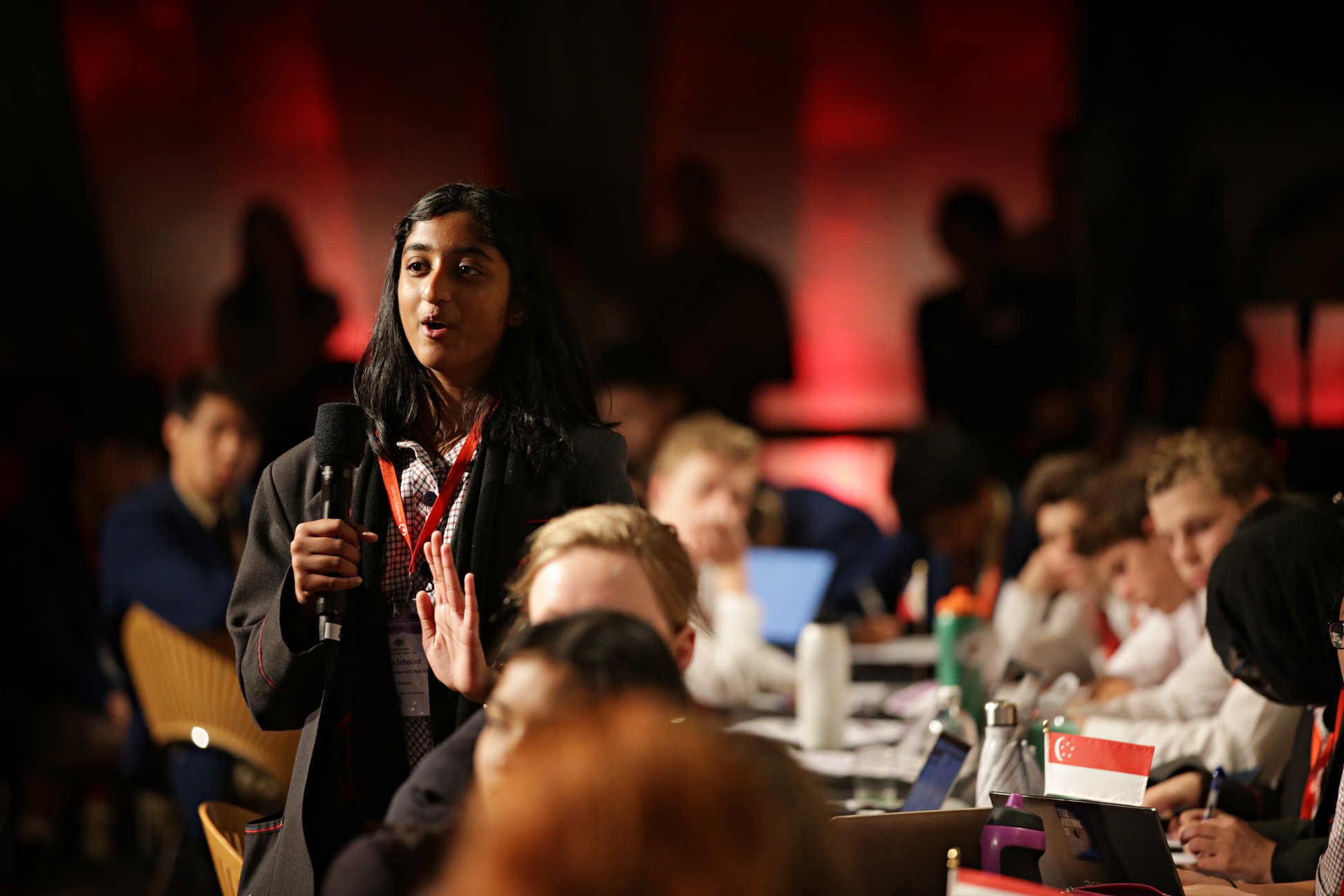by
User Not Found
| Feb 24, 2022
Brendan Hitchens, Program Coordinator, Asia Education Foundation

It’s daunting to think that a prep student who started primary school this year will graduate from high school in the year 2034. Or that in 2034, this year’s Year 12 graduates will be entering their 30's.
Even more daunting to imagine how much the world will have changed by then.
It's predicted the world’s population will be more than 8,772,850,000, of which 33 million will live in Australia. There will be greater housing density and urbanisation, Australia's electricity will be supplied by renewable energy sources, including solar, wind, and hydro-power, and India will surpass China to become the world’s most populous country.
Education futurists predict university, degrees will “become free but will include an expiry date,” the role of the teacher will shift to a mentor, and automation will become, "the new outsourcing.”
Thinking about the year 2034, rather than simply conceding young people will inherit a problematic world fraught with difficulties, we need to empower youth as not only contributors to change, but the drivers of it. And that starts with education.
The next frontier of Education
By taking down the concrete siloes of schools, by embracing the concept of the world being a classroom, making connections across the globe, and by positioning students as the key stakeholders to their learning through amplifying their voices - education can provide students with the tools and mindset to succeed in our interconnected world.
Despite what may result from radical changes to education in the coming decades, at its core, learning will remain a social process and an exchange of information and ideas.
It will be human-centered and relationship-based because, fundamentally education relies on connections. Connections between learner and teacher, the connection between peers, connection to the curriculum and connection to the world.
Through the role of the teacher, be it as a mentor, facilitator or advocate, education is, and will always be, about identifying that connection to head (thinking), heart (feeling) and hands (doing) to spark engagement, passion and action in a student.
If anything, technology will enhance this. When we think of the term people-to-people, we often think of the physical face- to- face, in person experience, however, that isn’t always the case. Increased Internet speeds and coverage, together with improved video conferencing platforms, have allowed for broader and deeper connections.
Technology has created opportunities to bring together diverse youth voices, be that from schools in the government, religious or independent sectors, city, regional or rural schools, or even across states, territories, and countries.
Such connections, both in the relationship and technology-based sense of the word, have created the opportunity for learning to take place beyond classroom walls, and transcend the once literal and metaphorical borders.
This has created an abundance of learning opportunities and experiences.
Through generating dialogue, debate and courageous conversations, students are becoming active creators of knowledge through real-life and real-time problem solving, and genuine opportunities for trans-formative learning, as they identify, discuss and share with their peers.
Through sharing, collaborating and networking with new audiences and in new contexts, such relationships and networks create respect, perspective, open- mindedness, and critical thinking, communication and creativity skills.
Connecting with schools beyond the same postcode or district also promotes the concept of global citizenship and real-life intercultural experiences, as students deepen their understanding of the world and its interconnections.
The OECD Future of Education and Skills 2030 research suggests that “social and emotional skills, such as empathy, self-awareness, respect for others and the ability to communicate, are becoming essential as classrooms and workplaces become more ethnically, culturally and linguistically diverse.” Further, that “meta-cognition, lifelong learning and understanding other cultures are needed to adapt to a changing environment.”
Global competence includes a combination of knowledge, skills, attitudes and values and therefore is intertwined with future work skills. The 2018 PISA Global Competence assessment identified benefits of this include students having the ability to; “prepare for the world of work, which increasingly demands individuals who are effective communicators, are open to people from different cultural backgrounds, can build trust in diverse teams and can demonstrate respect for others, especially as technology continues to make it easier to connect on a global scale.”
These are exactly the skills and values students need now and in the future for a prosperous 2034 and beyond. To paraphrase an Abraham Lincoln speech, why try to predict the future when we can create it.
So, let’s start today, with connection, collaboration, and courageous conversations.
#AEFchat